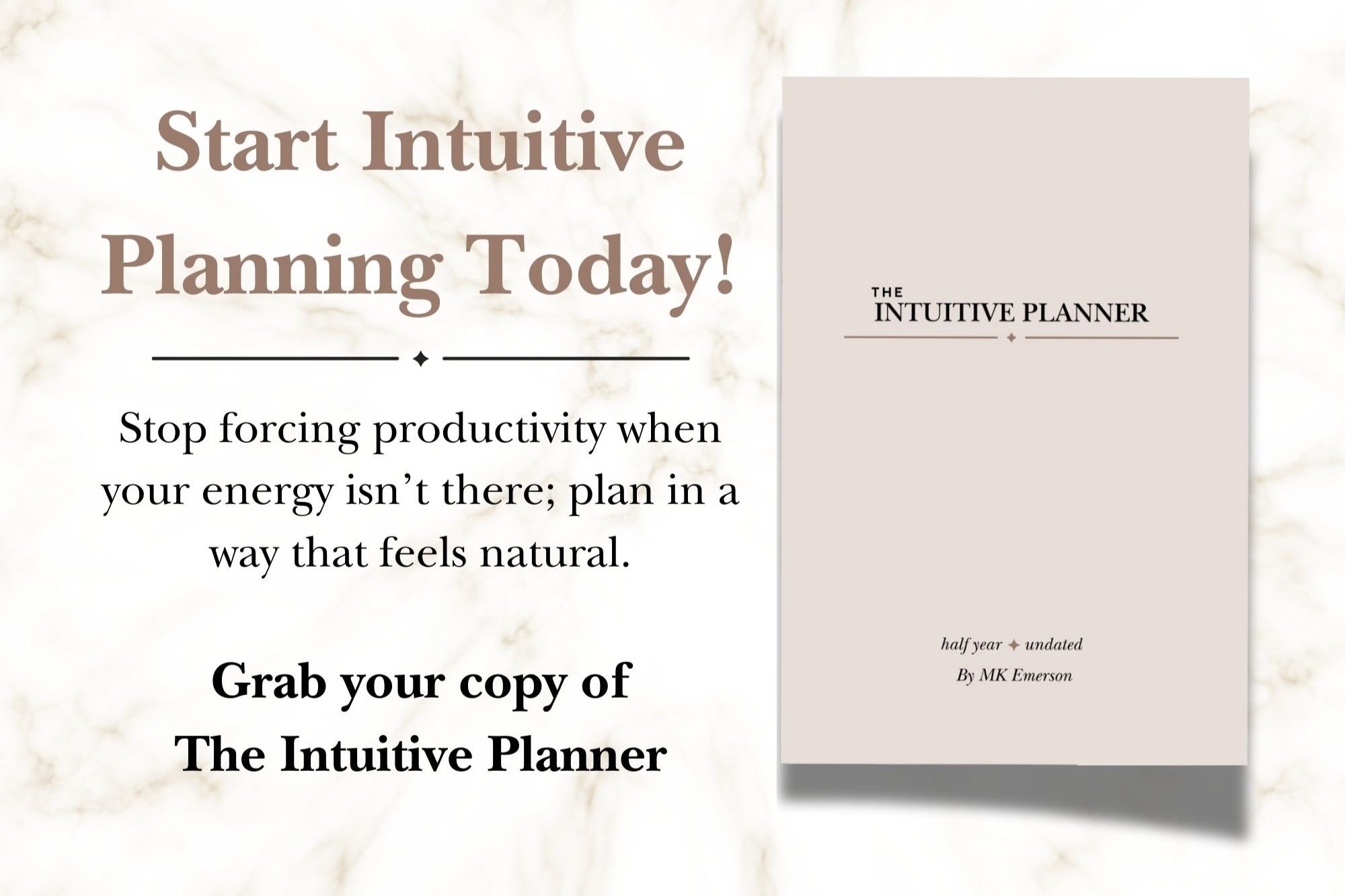The Problems of Relying Solely on Intuitive Planning
By MK Emerson
While intuitive planning offers a flexible approach to time management, relying solely on it can lead to several challenges. I’m all for taking a moment to veg out and grab a pizza, binge shows, and not get out of my pajamas, but let’s face it—I can feel like doing that every day!
It’s important to balance intuition with structured planning to achieve optimal productivity and well-being.
We have got to have some form of structure to not let ourselves go.
Here's why you shouldn't rely exclusively on intuitive planning.
1. Lack of Structure Can Lead to Chaos
Intuitive planning is highly dependent on how you feel at a given moment. While this can be liberating, it can also result in a lack of clear structure, causing important tasks to be overlooked. Without a solid framework, you may find yourself jumping from one task to another without a clear sense of direction, leading to inefficiency and potential chaos.
We all know that the world revolves around a clock most of the time.
If you stick to just intuition, you’re at risk of feeling guilt for:
Not being able to keep to your personal gains.
Not sticking to someone’s else’s needs, like your kid’s practice, team meeting, or other tasks that involve others.
You also risk feeling too overwhelmed with other obligations you miss - ones that follow structure - that you’re now lost and not sure which direction to take.
2. Inconsistent Productivity
Some days, you might feel incredibly productive and accomplish a lot, while other days, you might struggle to get anything done. This inconsistency can hinder progress, especially for long-term projects that require regular attention and effort.
And the truth is, a lot of times our intuition cannot be trusted, especially if you’re new to it. There is a fine line between intuition and our preconceived notions - or conditionings/subconscious thoughts.
There will be times when you think you’re too tired to do your next task. Could this be? Or are you avoiding it due to social anxiety, nerves, and laziness?
I mean no disrespect. These are questions I ask myself. It’s tough love here.
Procrastination can be misjudged as being too busy or just not feeling like it. You have to be honest with yourself. Working too hard is not encouraged, but sometimes it’s for our own good to push ourselves to the challenges that make us stronger. Many times our thoughts and feelings keep us sheltered when we really should grow. Only you can identify this.
3. Difficulty in Meeting Deadlines
Deadlines and commitments often require a level of discipline that intuitive planning alone might not provide. Structured planning ensures that you allocate specific time slots for critical tasks, making it easier to meet deadlines and honor commitments. Relying solely on intuition can result in procrastination and last-minute rushes, increasing stress levels. Not pretty. Not fun.
This is why I don’t follow a clock for the most part - only when there is an actual appointment or timeframe in the works, like a birthday party or a meeting with a client, team meetings, etc. Too much structure is bound to get you overwhelmed and burnt out. I have been there.
You need both intuition and structure. Don’t plan your non-time tasks around the clock.
4. Risk of Neglecting Less Enjoyable Tasks
Intuitive planning tends to favor tasks that align with your current mood and energy levels. This can lead to a tendency to procrastinate on less enjoyable but equally important tasks. Over time, this can create a backlog of tasks that need urgent attention, making it harder to manage your workload effectively.
I mentioned this above, and the consequence is more long-term. Those guilty and overwhelming feelings will build up - causing a pile of unchecked tasks to nag at your mind.
To harness the benefits of both approaches, consider integrating intuitive planning with structured methods.
That’s what I talk about here. So keep reading more on my blog to get insight on how to do this.
While intuitive planning offers valuable flexibility, balancing it with structured planning is essential for sustained productivity and stress management.
By integrating both approaches, you can enjoy the benefits of intuition while maintaining the discipline needed to achieve your long-term goals.
Share your story with me and how you combine both or how intuitive planning alone works for you - even 100% structured planning. I’m always happy to hear your experiences.
I’m here to help!
This blog was written to inform readers of the setbacks of relying on intuitive planning alone. It is not to be consider as professional advice, it is merely an opinion practiced by the author. Take what you want from it and grow, or toss it away and move forward. We’re here for fun!


